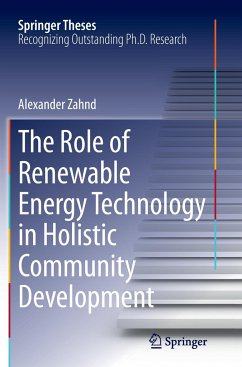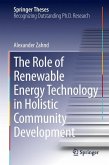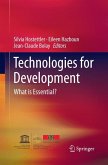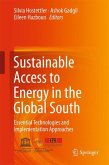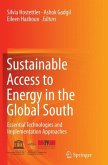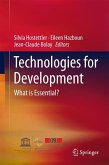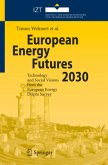This thesis documents almost twenty years of the author's work on the development and implementation of a new approach to holistic community development in remote and disadvantaged villages in Nepal. It describes the theoretical basis of the work, the main research activities, and the practical outcomes of the implemented programs. One of the fundamental cornerstones of holistic community development is the provision of appropriate and sustainable solutions for the long-term development of local communities. This requires that people's own identified needs be recognized and addressed in partnership with them in holistic ways. The author explains the many synergies that result from this holistic approach to community development. Another cornerstone of his approach is to utilise the communities' locally available renewable resources for long-term sustainable development. One of the key findings of the thesis is that improved access to energy services, such as cooking with a smokeless metal stove in a clean indoor environment, basic indoor lighting, and increased food production and safe food storage (through a greenhouse and a solar drier respectively), need to be at the very heart of any long-term holistic community development project. The thesis demonstrates that tapping into locally available renewable energy resources and converting them, through contextualized and locally manufactured renewable energy technologies, has a central role in long-term holistic community development programs. Such programs are successful because they provide both appropriate technologies and life-changing experiences for the local users involved.
Bitte wählen Sie Ihr Anliegen aus.
Rechnungen
Retourenschein anfordern
Bestellstatus
Storno

